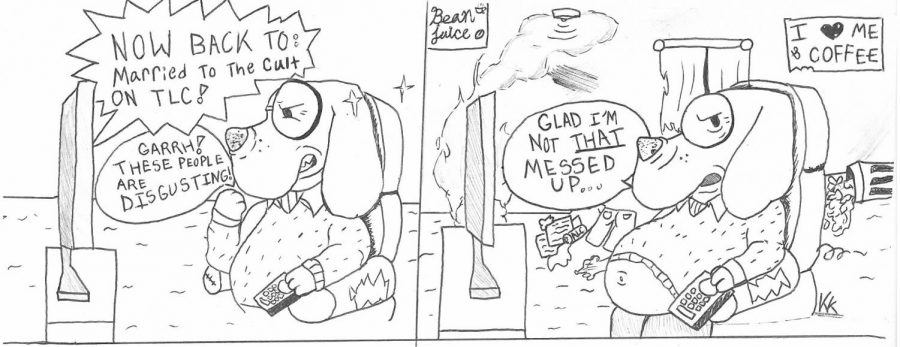The TLC complex
TLC is a channel owned by Discovery Inc. known for the interesting lives they capture. This has made TLC treasured for the cringe and shook.
January 23, 2020
TLC used to host educational content but now is used as a shame hub for people to watch in awe. TLC was initially called the Appalachian Community Service Network (ACSN) and was a collaboration between the Health and Human Services and NASA. It changed to TLC to stand for The Learning Channel. Bought by Discovery Inc., it was meant to share the same educational spirit as Animal Planet and Food Network. However, similar to the mentioned networks, TLC would shake things up to meet a new, suppressed demand. According to CNBC, “The Learning Channel learned that learning is boring. Leering is better.”
In 2008, with the new theme and slogan, “Life surprises” led the way to more reality TV. The shows launched were “Jon & Kate Plus 8,” “19 Kids and Counting” and “Toddlers & Tiaras.” These shows featured the zany adventures of parents and their outrageous children. Shows in the 2010s included “Sister Wives,” “Long Island Medium” and “My 600-lb Life” featuring the lives of controversial people and ideas. This trend would only continue in 2014, leading to TLC changing their slogan to “Everyone Needs a Little TLC.”
Former General Manager of TLC Nancy Daniels stated that the new tagline gives the audience a “chance to satisfy their fascination with the unknown and understand the larger world around them.”
This begs the question of how and why the TLC lineup has remained so popular among audiences. According to Psychology Today, philosophers believe the disgust we feel is part of the moral compass that guides our decisions. The social comparison theory is another psychological explanation, as it explains our innate drive to evaluate ourselves through others. TLC makes us feel Downward Social Comparison, where people compare themselves with people they believe are worse off.
VeryWellMind says, “downward comparisons are often centered on making ourselves feel better about our abilities.”
Others believe it is simple schadenfreude, the joy in other people’s misfortune. However, this idea has been conflicted with the research. A study by the Journal of Media Psychology showed that the more that participants said they enjoyed the shows, the more likely they would be to participate. The study also showed that there was a positive outlook on reality TV, giving credence to the idea that reality TV is more about enjoyment than hatred.
In the end, TLC does provide a chance to depict different lives and personalities in precarious situations. A further explanation is empathy, as viewers grow closer to the people and learn more about them. In a Deadline article, current TLC General Manager Howard Lee says “From laughter to tears to a ticking clock, TLC is dedicated to giving our viewers a rollercoaster of emotions.”








